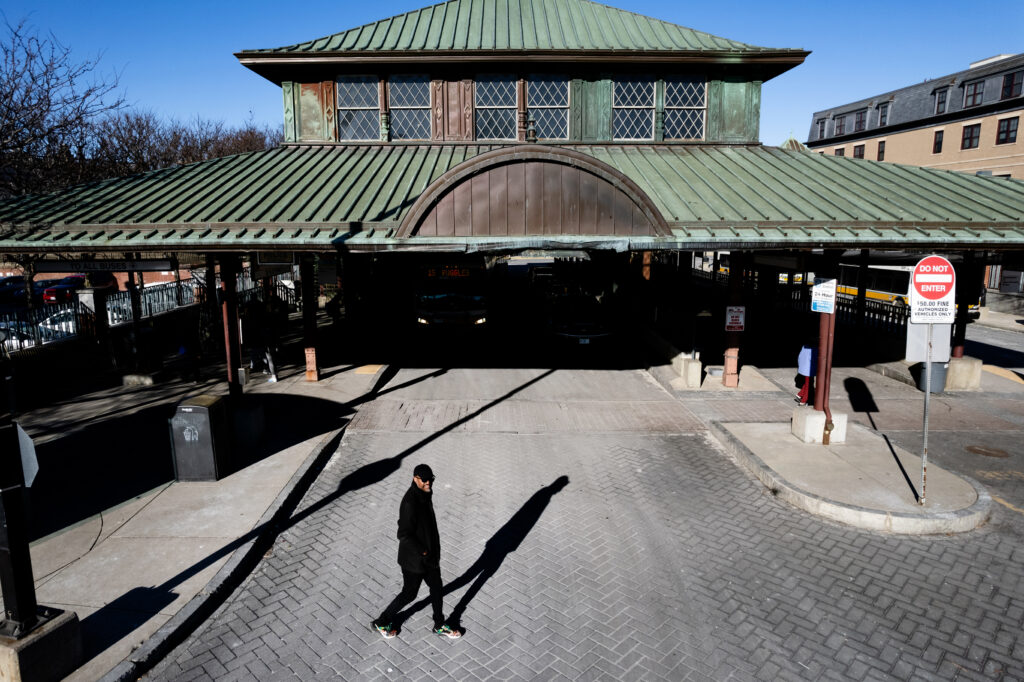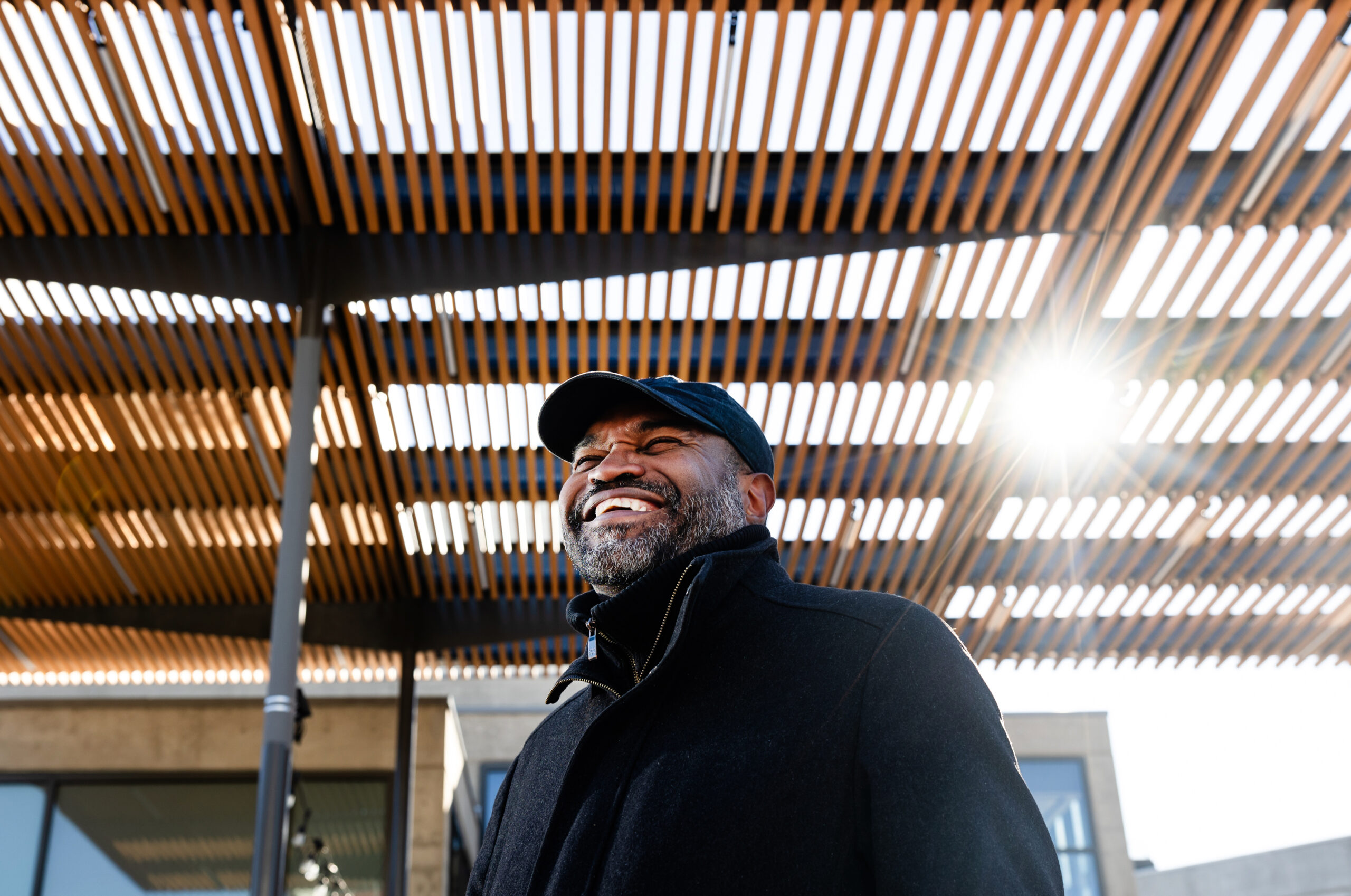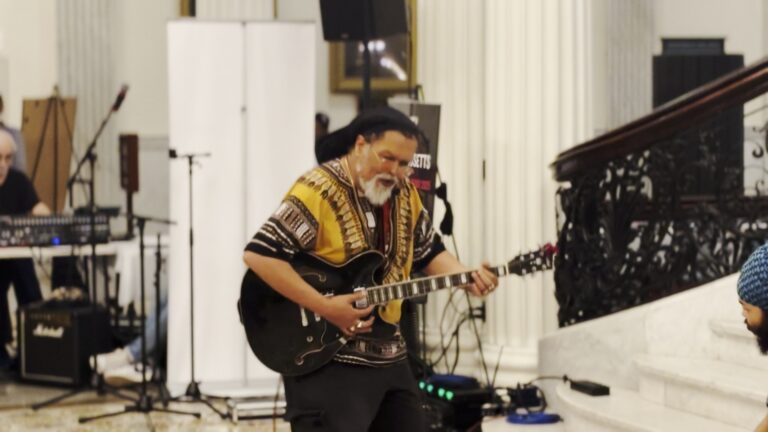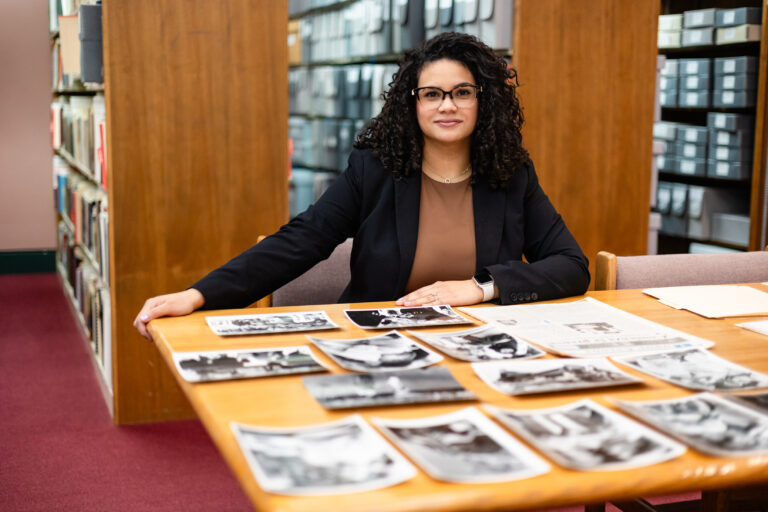“Redline Narratives: The Lost Cultural Hubs of Boston” is a documentary film created by Marlon Solomon, founder of Afrimerican Culture Initiative. The film, which is funded by an Expanding Massachusetts Stories grant, explores how Black communities in Roxbury have been displaced by urban renewal projects and city expansion. We recently sat down with Solomon to discuss his inspiration and goals for the film.
For those who don’t know, what is “redlining”?
Marlon Solomon: Red line maps are tools that were developed in the 1930s to identify the location of all communities of culture. Jewish, Italian, African merican primarily. It’s the immigrant population. That tool was used in a number of things, including to identify where to put your highways through and city expansions.
Why did you want to make a documentary film, as opposed to an exhibit or a printed piece?
Marlon Solomon: I teach young people. Unfortunately, they do not like to read or have any paper in their hands. So, my organization really tries to look at some of the trends. There’s no study on this, but there’s a vast majority of African Americans who get their history from sources like Instagram. The books are not there. So, you just have freelance historians putting these things together and putting them on Instagram. So that’s the main reason why I wanted to make a documentary. You have to teach your kids who they are and where they stand because there’s a continuation. They’re only here for a little bit, and then they have to hand it off to somebody else.

How do you understand this idea of Expanding Massachusetts Stories?
I would say even in this very unique case, I don’t know if “expanding” is the right word. It might be more like “reviving” or “resuscitating” or “rediscovering.” When I got the grant, I was just elated. This documentary proved to me I’m literally in the complete right place of what I want to do. I know the story, I need to make the connection between the social engineering, and the civil engineering, and the cultural artifacts. Ultimately the results will be there forever.
“I think this documentary proved to me how I’m literally in the complete right place of what I want to do.”—Marlon Solomon
What can you share about Atlascope Boston, the app that you used to view historical maps and surveys of the city?
All this stuff is literally readily available. There’s no secret on this map. But, nobody’s talking about the map. The people here [in Roxbury] are so busy trying to stay in place and be alive.

What sort of advice would you offer to people interested in doing a humanities project?
If you’re an entrepreneur, especially a social entrepreneur doing nonprofit work, you’re gonna have to learn to get out of your comfort zone. And, always be ready to learn.





